On April 2, as Nigeria’s megacity Lagos and its capital Abuja locked down to control the spread of the coronavirus, the country’s military announced a massive operation — joining forces with neighboring Chad and Niger — against the terrorist group Boko Haram and its offshoot, the Islamic State’s West Africa Province. This spring offensive was in response to a seven-hour attack by Boko Haram fighters that killed 98 Chadian soldiers in late March. Since then, the joint Nigeria-Chad-Niger military offensive has killed hundreds of Boko Haram militants.
In the past few weeks, Nigeria’s economy has entered into a dangerous spiral due to plummeting oil prices and the economic costs of its lockdown — an existential threat to the country, some say. Meanwhile, the conflict in Nigeria’s Lake Chad region, the epicenter of Boko Haram, has intensified.
Aside from its kidnapping of nearly 300 schoolgirls in Chibok in 2014, Boko Haram has not captured the world’s attention the way global jihadist groups have. This is perhaps because its focus is local to northern Nigeria. Yet Boko Haram overtook ISIS as the world’s deadliest terrorist group in 2015, and its violent insurgency, now more than 10 years old, has displaced more than two million and killed tens of thousands in the country.
Given Nigeria’s unique context — it is roughly half Muslim and half Christian — and sheer importance as Africa’s largest economy and the world’s seventh most populous country, this conflict warrants our attention. As I argue in a recent report, the Nigerian military’s kinetic action alone will not be enough to eliminate extremism in the country’s North East region. Boko Haram emerged in a specific regional context in Nigeria and exploited long-standing grievances. Going forward, Nigeria’s federal government will need to address those grievances if it is to consider its fight against the group successful.
“Western education is forbidden”
Boko Haram literally translates to “Western education is forbidden.” How does the group’s ideology relate to education and why did it draw support in Nigeria’s North East?
Post-9/11, conventional wisdom — which has not often held up to close empirical examination — has linked extremism and terrorism to a lack of education and poverty. In Nigeria’s context, this is an easy explanation: Its North East region is poorer and has worse educational outcomes than the country’s south. But the story isn’t that simple.
There are three main narratives you hear in Nigeria on Boko Haram recruits: that they are not educated; that they are al-majiri, children who beg in the streets in return for food, housing, and education in a religious seminary (accounts suggest that the group’s founder, Muhammad Yusuf, was an al-majiri); and that they were university students or graduates who tore up their “certificates,” or degrees, to join Yusuf. Which of these is the real story?
The study
To understand support for Boko Haram and how it relates to education, I conducted a quantitative analysis of public opinion survey data, as well as a qualitative study of textbooks, curricula, and the broader historical narratives in the country. I also visited Nigeria in the fall of 2019 and met with education officials, students, researchers, and journalists in Nigeria’s North Central region, as well as education officials, professors, and journalists from the North East.
What the data tells us
Views of Boko Haram over time

The Pew Research Center fielded a question on favorability toward Boko Haram to approximately a thousand respondents in Nigeria annually between 2013 and 2017. Looking at the data over time reveals that as Boko Haram’s influence spread, and as its control of territory increased between 2013 and 2015, support for the group increased, in spite of its violence. That support was sustained as the group held territory until 2015. Support declined only after Boko Haram was countered militarily by the Nigerian state.
I found that in these years, support for the group was located almost entirely in the northern regions.
Views of Boko Haram, by education, North Central Nigeria

Looking at how support for Boko Haram in the northern regions relates to education reveals the following: Northerners’ favorability toward Boko Haram does not fall linearly with education, suggesting that the conventional wisdom that a lack of education is associated with support for extremism does not hold.
In fact, the results show that for northerners with some years of education — peaking in most cases for those with junior secondary school degrees — support for Boko Haram is higher than it is for those with less education. These results in themselves do not rule out any of the three popular narratives for Boko Haram recruits and supporters (the poorly educated, the al-majiris, and university graduates). However, it suggests that a group all these narratives overlook — those with a few years of schooling beyond elementary school — might be particularly vulnerable.
The explanation: The grievance against Western education
How does education relate to support for Boko Haram? The explanation rests on grievances that already existed in Nigeria’s predominantly Muslim north against the federal government’s post-colonial, federally-imposed, Westernized system of education. The British had not exposed the more traditional north to this system in colonial times, fearing backlash, while the predominantly Christian south had already experienced it for decades. The north’s grievances rest on four interrelated factors.
First, there is a lack of northern buy-in for the federal government’s Western system of education. Many northern Muslims see this system as ideologically incompatible with their beliefs and as insufficiently representative. My interviewees said the federal government’s “[text]books are from a different culture.”
Second, Western education is also seen as responsible for poor educational outcomes in the north because it was imposed on a population not familiar with that system during colonization, in contrast to the south. To top it off, Islamic scholars in the north ended up being entirely disempowered and deemed illiterate.
Third, the system of Western education is blamed for the lack of job opportunities in the north, even for educated people, because of a lack of skills they acquire in that system. Unemployment is a symbol of “dashed expectations,” leading to the youth “tearing up their certificates,” or degrees. The argument goes something like this, as Andrew Walker notes in his book on Boko Haram: “We’ve seen those that go to school, they don’t speak well or write well, they don’t get a job, so why bother?” Yusuf, Boko Haram’s founder, argued that college graduates should instead join the group and earn a better life in the hereafter.
Fourth, Western education is considered a symbol of the Nigerian state’s corruption because it is Western-educated politicians and elites who are seen as presiding over that corruption.
How do my empirical results relate to this? I argue that it is some experience with the system of Western education that draws out northern grievances against it.
A wide base
By all accounts, Boko Haram’s ideology seems to have drawn a wide swath of support in the north in the early 2000s. According to a journalist I interviewed: “We [he and Boko Haram members or sympathizers] all grew up together, played football together.” In the words of the two professors I met from the north: “There are many [Boko Haram members or sympathizers] in our communities.”
Since then, the group’s lethality and violence have made many turn against the group — but the grievances remain intact. If they remain unaddressed, another group that exploits these grievances can draw popular support again.
Policy
Military action against Boko Haram won’t be enough to eliminate the popular support that the group drew upon. What will work? What’s needed is a more representative education system than the current federal system for the north. It must not only accommodate the north’s religiosity and cultural differences, but also boost its people’s educational as well as employment prospects.
The big picture
Ultimately, I argue, the rise of Boko Haram is inextricable from post-colonial identity formation in Nigeria, a singularly diverse state. In my previous work in Pakistan, I found that the state’s imposition of national identity through its education system — its twin pillars of a focus on Islam and the enmity with India — ended up fostering extremism.
In Nigeria, the federal government’s imposition of its concept of nationhood — “one Nigeria” — and its system of Western education resulted in dangerous fissures and tensions that Boko Haram exploited. This is no excuse for the group, but it offers an explanation for the support it drew from the population. It also directs where Nigeria’s federal government must focus as it seeks to permanently quash the lethal insurgency it faces in its north.
The Brookings Institution is committed to quality, independence, and impact.
We are supported by a diverse array of funders. In line with our values and policies, each Brookings publication represents the sole views of its author(s).

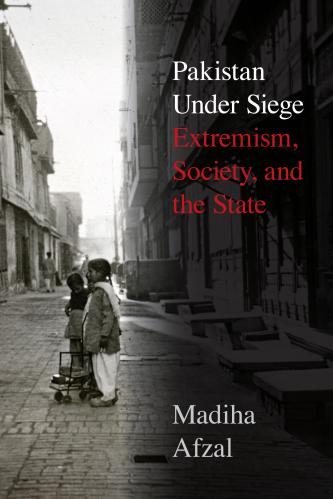
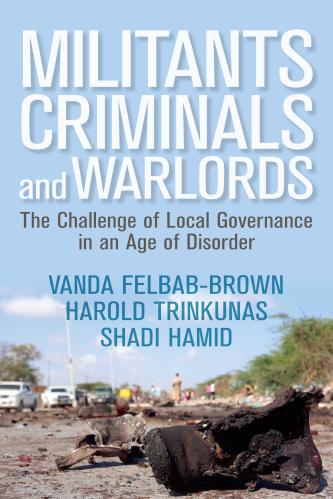
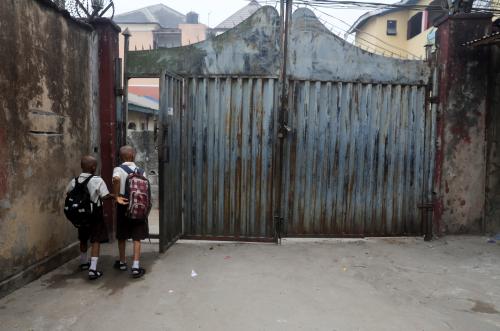
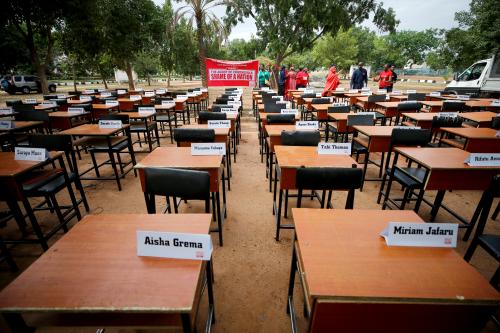
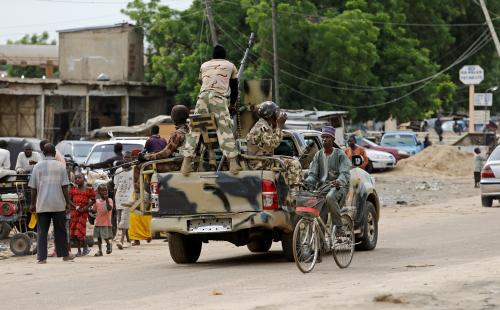




Commentary
The fundamental connection between education and Boko Haram in Nigeria
May 7, 2020